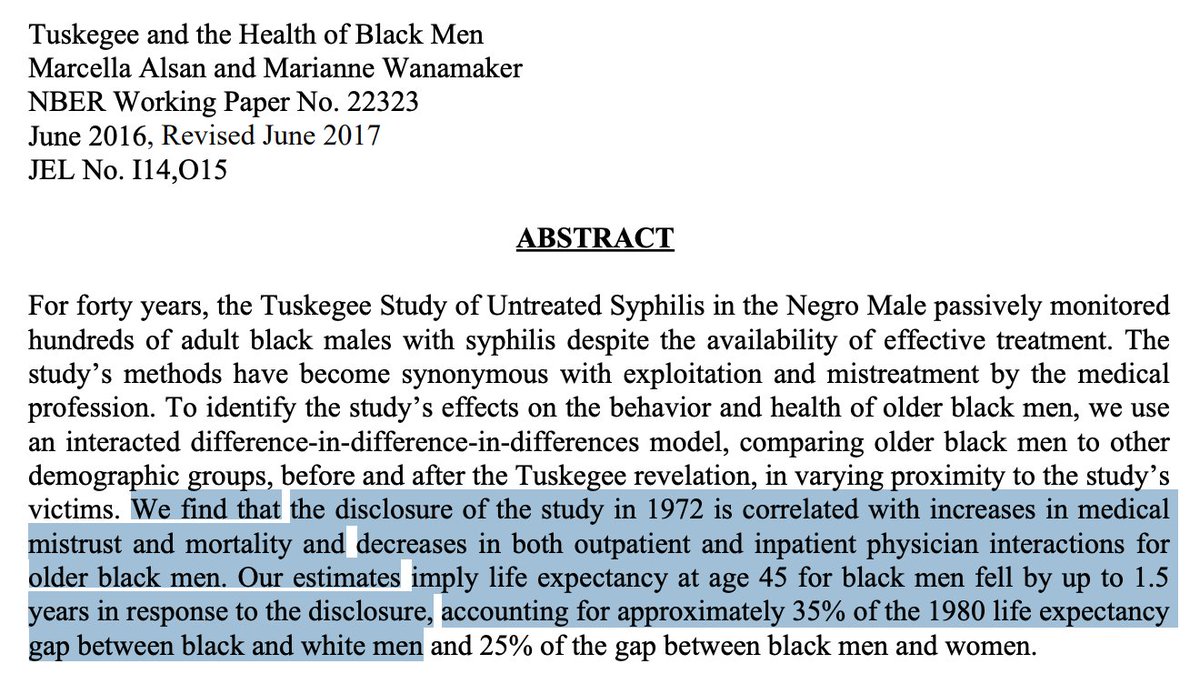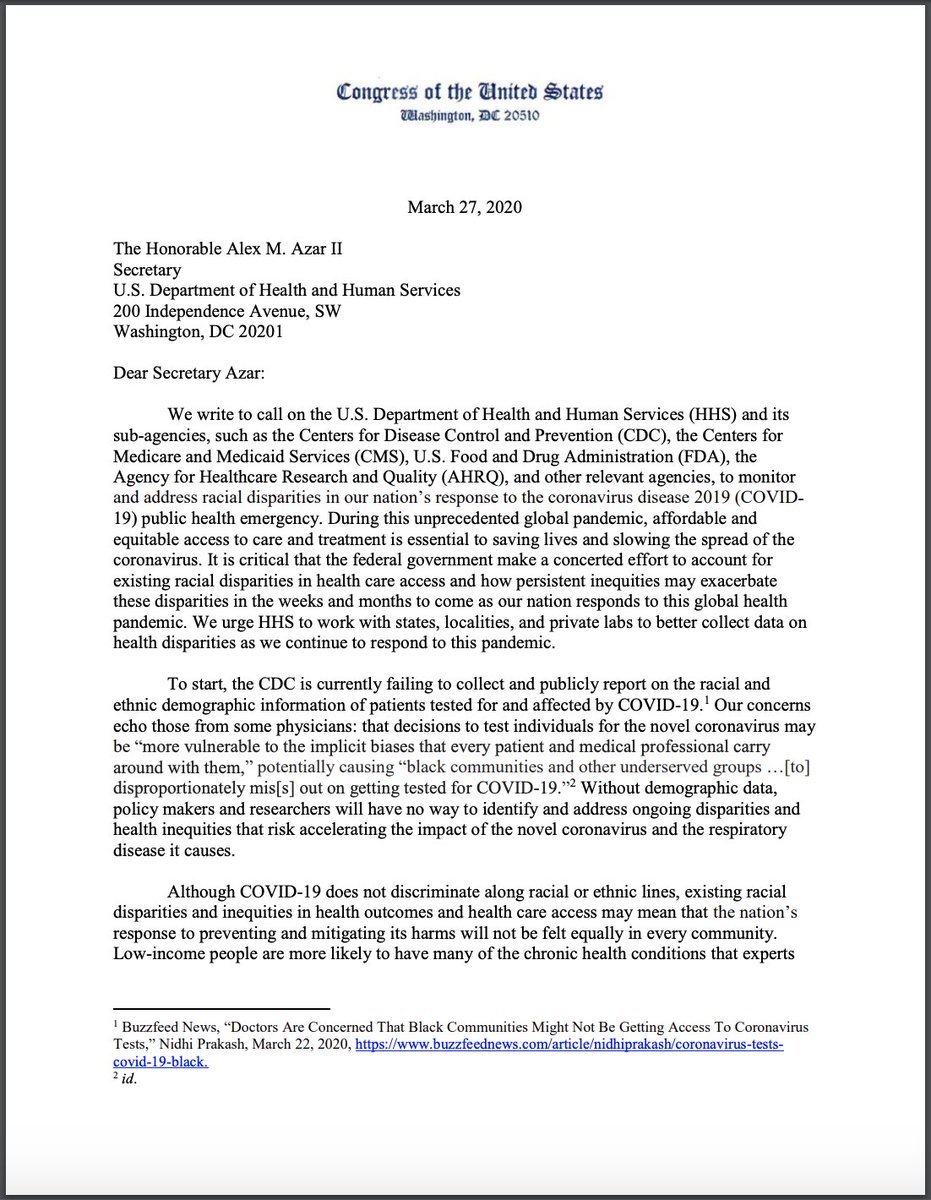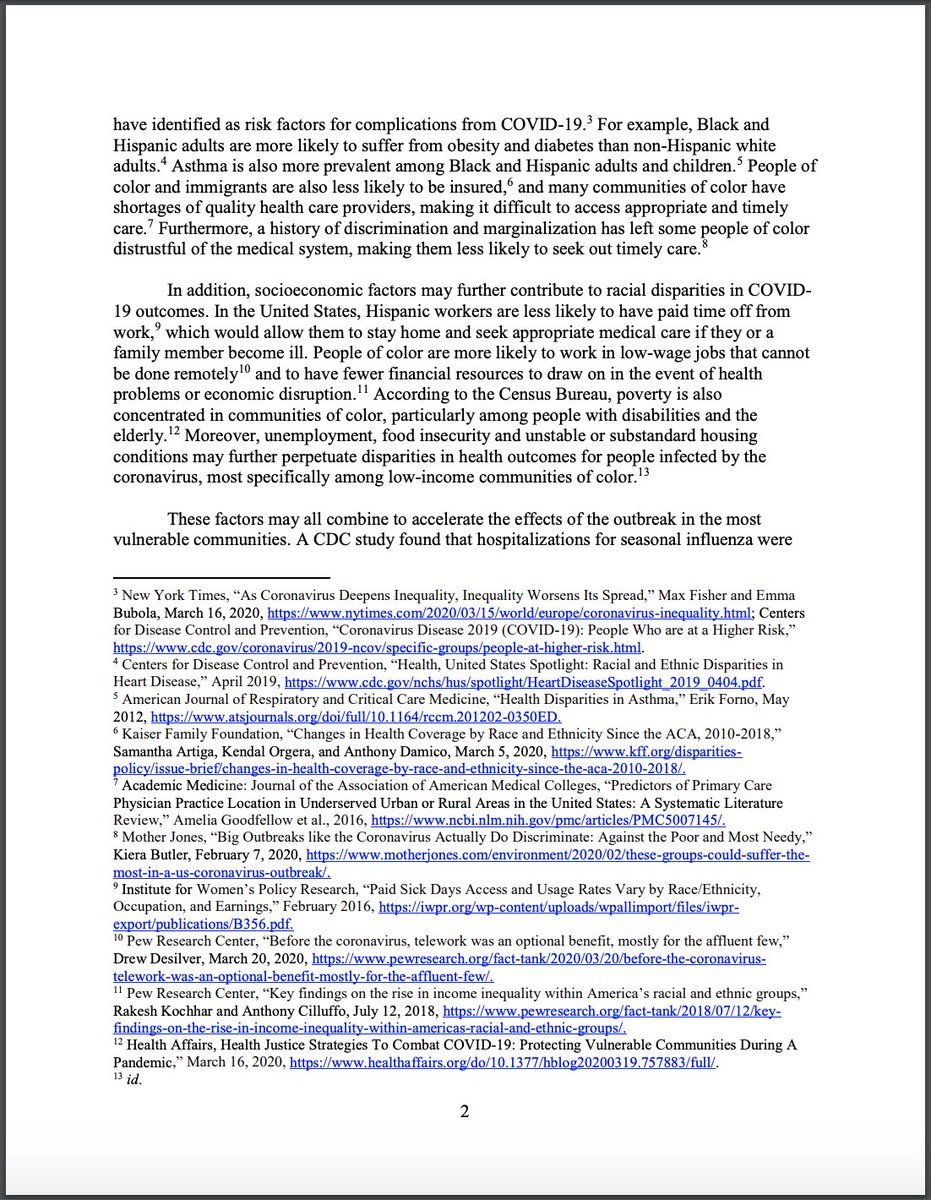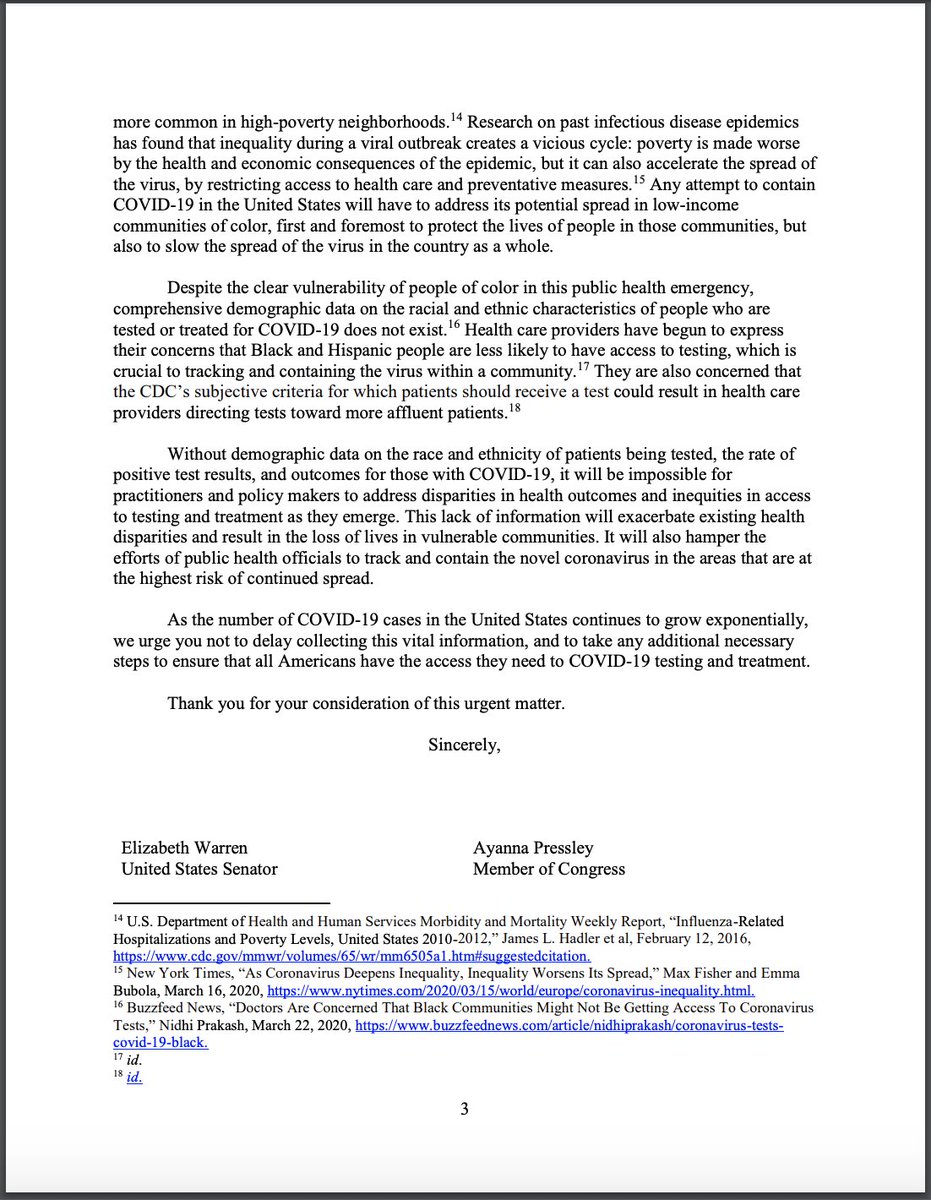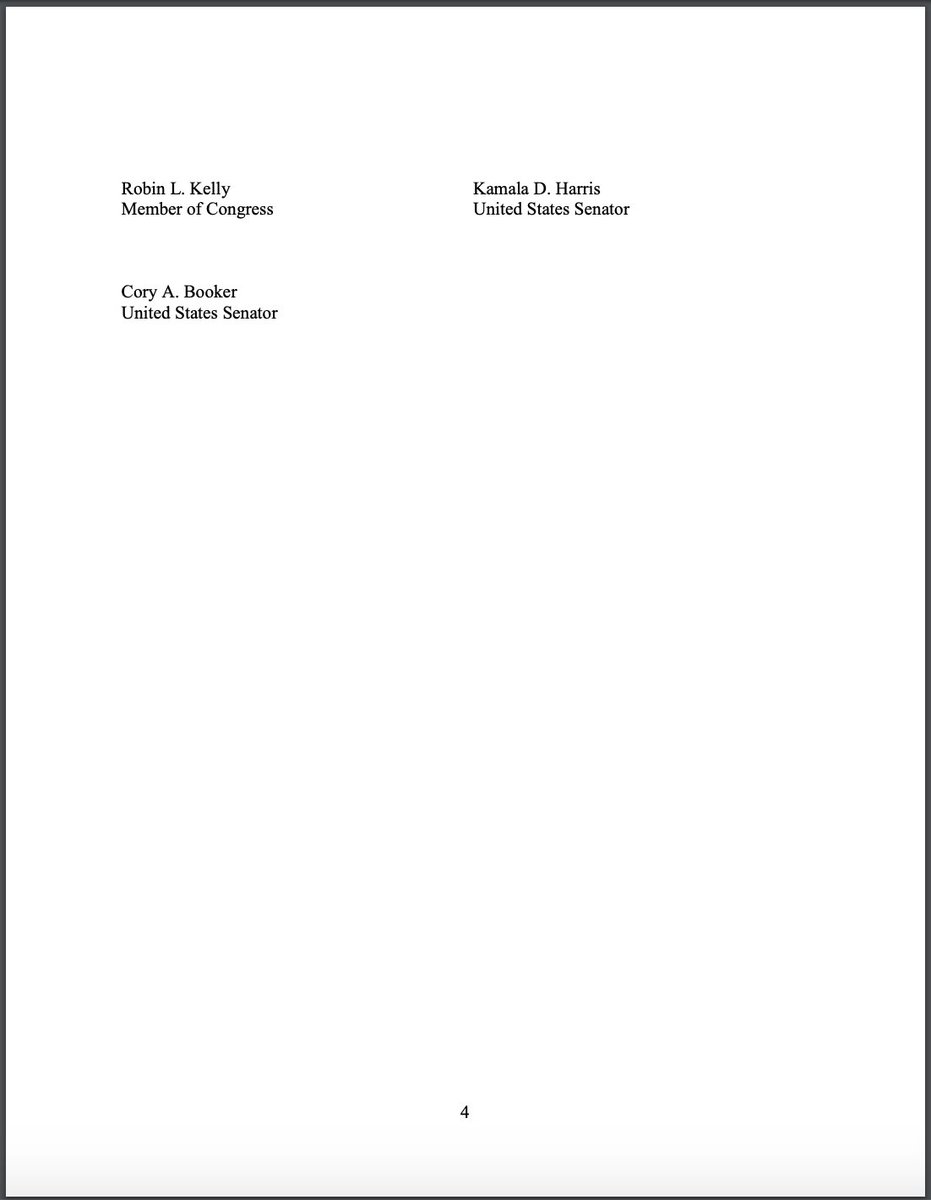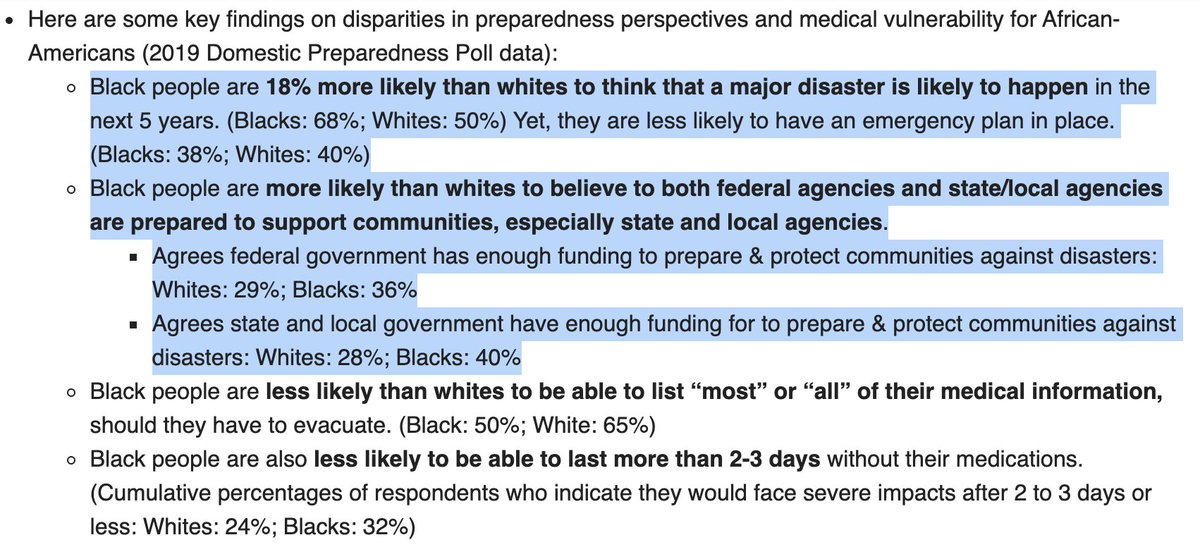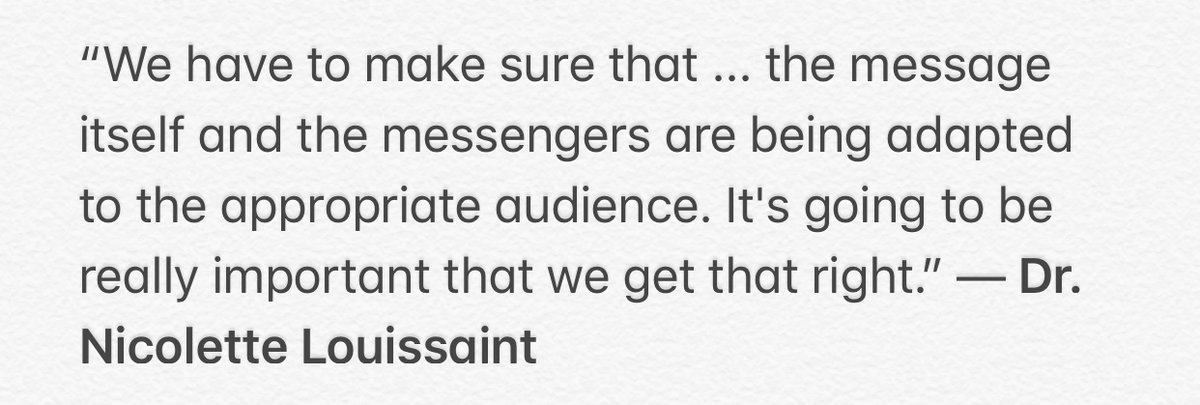NEW from me, @AP: "The Tuskegee effect: Amid coronavirus outbreak, black mistrust of medicine and government looms” https://bit.ly/39LLrIh
A">https://bit.ly/39LLrIh&q... thread. 1/X
A">https://bit.ly/39LLrIh&q... thread. 1/X
Preliminary data show Black Americans are contracting and dying of COVID-19 at alarming rates. My colleague @kat__stafford and I, along with our friends at @propublica, are starting to track and document that. https://bit.ly/349orBV ">https://bit.ly/349orBV&q... 2/X
AP bureaus across the U.S. are keep tabs, too. 3/X
Wisconsin: https://bit.ly/2JI3BQu
Louisiana:">https://bit.ly/2JI3BQu&q... https://bit.ly/39O3uNP ">https://bit.ly/39O3uNP&q...
Michigan: https://bit.ly/2UK0KNx ">https://bit.ly/2UK0KNx&q...
Wisconsin: https://bit.ly/2JI3BQu
Louisiana:">https://bit.ly/2JI3BQu&q... https://bit.ly/39O3uNP ">https://bit.ly/39O3uNP&q...
Michigan: https://bit.ly/2UK0KNx ">https://bit.ly/2UK0KNx&q...
Weeks ago, I grew concerned about whether the right info about coronavirus was getting to Black Americans. I felt that, given Black folks have more than our share of chronic health conditions, COVID-19 should spook us especially. 4/X
I caught @nbcsnl’s “Weekend Update” segment with @Reddsaidit mentioning COVID-19. He ended the segment by jokingly proclaiming that black people couldn’t get the coronavirus. It was the last day of Black History Month. 5/X
Memes in my social media feeds and even exchanges in my family group chat amplified my concern that generalized skepticism and misinformation around medicine and government could harm my close friends, their loved ones and my loved ones. 6/X
So, I’m taking time today to give you a bit more from my “reporter’s notebook,” some of which couldn’t fit into just one story. 7/X
For one, I wanted to understand from an academic viewpoint what creates intracommunity mistrust and conspiracy theories around medicine and government. 8/X
Patricia A. Turner, a professor of folklore in the Department of African American Studies at University of California, Los Angeles, told me mistrust and conspiracy theories are reflection of how people perceive the power arrangement between a majority and a minority. 9/X
Many black people, even if scantly, know something about the Tuskegee experiment, the U.S. government’s once-secret syphilis study of black men in Alabama. The CDC’s website maintains a page about it. https://bit.ly/39DevBK ">https://bit.ly/39DevBK&q... 10/X
And the legacy of that study lives with us today. A 2016 paper found that the Tuskegee study’s revelation correlated with increased medical mistrust and mortality for older black men, and decreased the men’s interactions with doctors. https://bit.ly/2UK1uSP ">https://bit.ly/2UK1uSP&q... 11/X
My colleague and AP’s Alabama correspondent, @Jay_Reeves, spoke to a former mayor of Tuskegee who confirmed mistrust over the study still lingers. The sentiment is, “‘You people have been telling us lies for years. Why should I believe you now?’” https://bit.ly/39LLrIh ">https://bit.ly/39LLrIh&q... 12/X
Per @HHSGov, black adults are 60% more likely than white adults to be diagnosed with diabetes, 40% more likely to have high blood pressure and less likely to have those conditions under control. It all complicates COVID-19. https://bit.ly/39IuGO7 ">https://bit.ly/39IuGO7&q... 13/x
That’s why Rep. @AyannaPressley and others called on the Health & Human Services Dept to collect and release race/ethnic data on testing and treatment for COVID-19. It’s needed to ensure there aren’t response disparities, she said. https://bit.ly/33W8EGp ">https://bit.ly/33W8EGp&q... 14/X
“We are right to be paranoid and to ask tough questions,” Rep. @AyannaPressley told me earlier this week. “History has shown us, when we do not" ask questions, “the consequences are grave, and in fact life and death.” 15/X #coronavirus #COVID19
Even if it didn’t seem like it, #COVID19 outreach to communities of color began in earnest mid-March. The @NAACP hosted a coronavirus tele-town hall with the U.S. surgeon general and public health advocates that drew 21,000 participants. 16/X
. @Surgeon_General Jerome Adams, who is black, spoke to his own experience with medicine during the March 15 @NAACP town hall. “I know what it’s like growing up poor, black and with minimal access to healthcare.” His full remarks begin at 10:40, here: https://bit.ly/3dPiqP4 ">https://bit.ly/3dPiqP4&q... 17/X
A week ago today, @TheRevAl& #39;s National Action Network convened a similar tele-town hall that included @RepJeffries. Full video of the event, here: https://bit.ly/2ysyENR ">https://bit.ly/2ysyENR&q... 18/X
During the @NAACP town hall, I was struck by a bit of context that @DrNLouissaint offered. Her organization, @HC_Ready, does polling around our collective preparedness for public health emergencies. Their 2019 survey found that Blacks “are more concerned, less prepared.” 19/X
To best serve the Black community, combat the “Tuskegee effect” and improve healthcare outcomes, @DrNLouissaint, who helped run the @StateDept’s Ebola response in 2014, stressed to me the need for increased Black representation in the medical field. 20/X
Increasing Black representation in medicine is what @streetmedicmil, co-founder of a public health group for black men and boys, TRAPMedicine, is trying to do. His group educates Black barbers and organizes workshops inside of the barbershops. https://bit.ly/2yyA89n ">https://bit.ly/2yyA89n&q... 21/X
Jahmil, who I went to high school with, also plans to enter medical school this fall. “We need more of us having these conversations, not just in the clinic but in the barbershop,” he told me. 22/X
So, as we continue to learn how the coronavirus is moving through humanity — more than 1.1M diagnosed and 64K dead worldwide — understanding where there is and isn’t equity in the response is ESSENTIAL to preventing a larger death count. https://bit.ly/39LLrIh
Ends">https://bit.ly/39LLrIh&q... thread.
Ends">https://bit.ly/39LLrIh&q... thread.

 Read on Twitter
Read on Twitter
